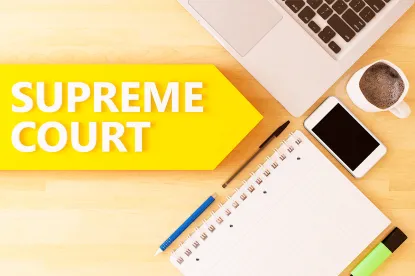There were a number of things that took me off guard with respect to the Supreme Court’s opinion yesterday in Uzuegunam v. Preczewski, Case No. 19-968. First, apparently for the first time in the 16 years he has been on the Court, the Chief Justice was the lone dissenter in a case. I was also surprised to see a decision from the Court less than two months after argument in January 2021. And, finally, I wasn’t expecting this outcome from this Court!
The case involved two college students who were suing college officials on the grounds that the college’s speech policies violated the First Amendment. The students sought injunctive relief and nominal damages. The college discontinued the challenged policies, so the question was whether the lawsuit was moot or whether the students had standing to maintain their lawsuit based on their request for nominal damages. In a 8-1 decision written by Justice Thomas, the Court held that a request for nominal damages satisfies the redressability requirement for establishing Article III standing.
In an animated dissent, Chief Justice Roberts identified “a few problems” with permitting the lawsuit to proceed: the petitioners are no longer students; the challenged restrictions no longer exist; and petitioners have not alleged actual damages. According to the Chief Justice, the case is moot. The Chief Justice noted that a claim for nominal damages does not change the outcome because nominal damages do not alleviate the harms suffered by petitioners, nor are they intended to do so. In the Chief Justice’s view, if nominal damages can keep a controversy alive, courts will end up providing advisory opinions on a routine basis. Indeed, the Chief Justice wrote: “The Court sees no problem with turning judges into advice columnists.”
Justice Thomas was quick to point out that simply making a claim for nominal damages does not guarantee that the case will go forward. The Court is only addressing the third requirement—redressability—for standing; there are two other requirements that were satisfied in this case but not readily met in others (injury and traceability to challenged conduct). But it pretty easy to see the potential impact that this decision could have on broadening standing in a variety of situations, including those that are near and dear to our hearts here at CPW.




 />i
/>i

